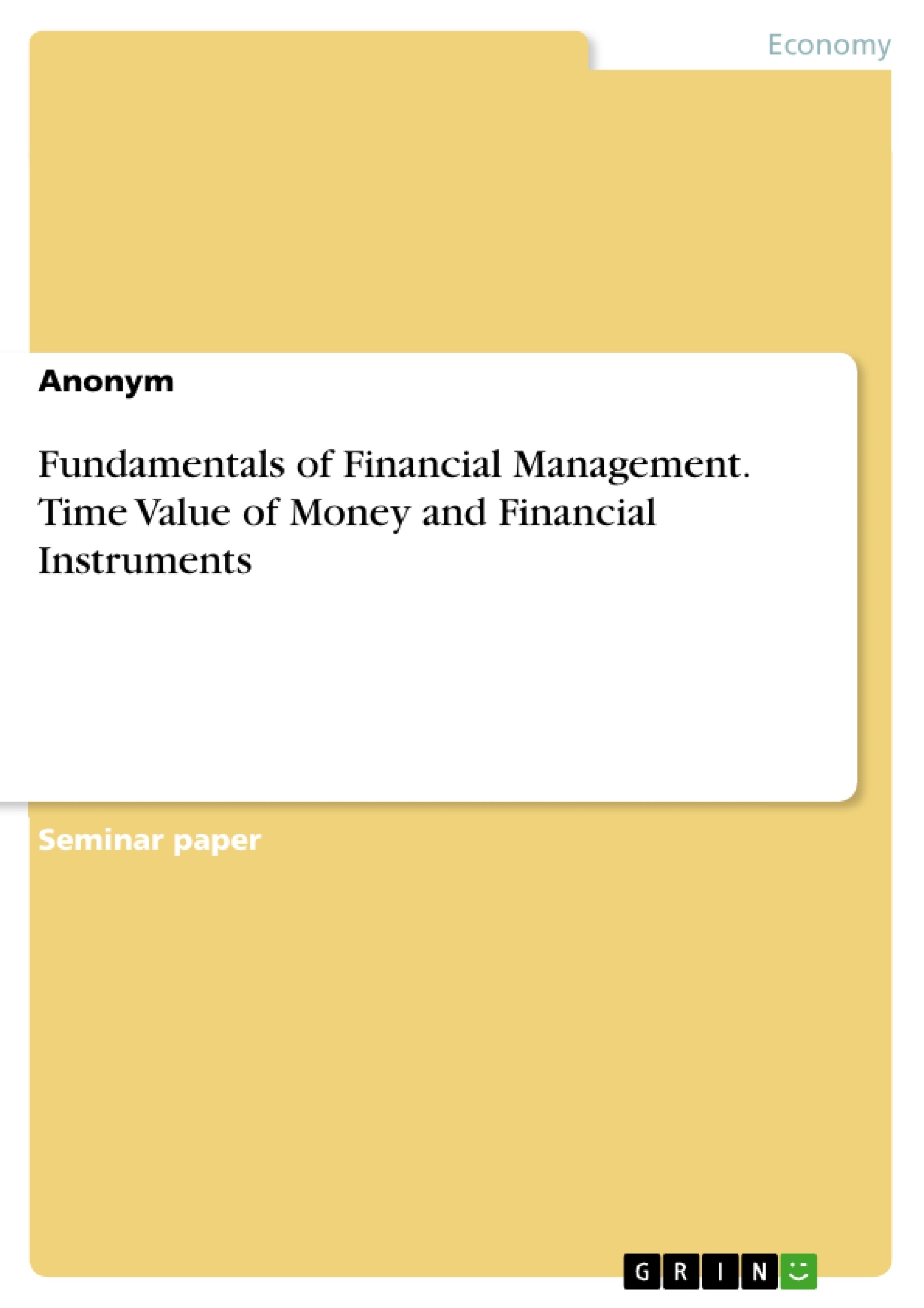The text discusses the fundamental concepts of financial management, including the importance of the time value of money and applicable financial instruments used by financial managers in organizations. Financial managers must understand these concepts to make the best financial decisions for the organization, as the financial world is unpredictable and presents challenges in determining the best choices. The report provides a brief overview of these concepts and suggests further analysis of their advantages and disadvantages, as well as their usage and importance within an organization. An application of these concepts to real-life companies would also be helpful.
Table of Contents
- Introduction
- Question 1: Explain the term financial management in detail:
- Financial Management as a Practice
- Three Pillars of Effective Fiscal Governance
- Three Broad Types of Financial Management
- Financial Independence and Importance for Success
- Key Roles of Financial Management
- Question 2: Discuss why financial managers need to understand the concept of the time value of money:
- The Time Value of Money (TVM) Concept
- Simple Interest vs. Compound Interest
- TVM's Importance in Decision-Making
- Factors Affecting the TVM Concept
Objectives and Key Themes
This report aims to explain the fundamental concepts of financial management, highlighting the importance of time value of money and its application in financial instruments implemented by financial managers within organizations.
- Financial Management as a Practice and its Three Pillars
- Three Broad Types of Financial Management: Capital Budgeting, Capital Structure, and Working Capital Decisions
- The Importance of Financial Independence for Organizations
- The Time Value of Money (TVM) Concept and its Underlying Principles
- The Influence of Inflation, Risk, and Investment Opportunities on TVM
Chapter Summaries
The first chapter introduces the concept of financial management, defining it as the practice of managing a company's finances to achieve profitability while adhering to regulations. The chapter further discusses the three pillars of effective fiscal governance: strategizing, assisting, and controlling. It also details the three broad types of financial management: capital budgeting, capital structure, and working capital decisions. The chapter concludes by outlining the importance of financial independence for organizations and emphasizing the key roles of financial management in ensuring continuous capital infusion, optimizing expenditures, and analyzing market trends.
The second chapter delves into the concept of time value of money (TVM), a fundamental principle in finance stating that money held today is worth more than the same amount in the future. The chapter explains the TVM principle based on compound interest and its significance in investment decision-making. It explores the impact of factors such as inflation, risk, and investment opportunities on the TVM concept, highlighting the need for financial managers to understand and apply this principle for effective financial management.
Keywords
Financial management, profitability, compliance, fiscal governance, capital budgeting, capital structure, working capital, financial independence, investment, expenditure optimization, market trends, time value of money, compound interest, inflation, risk, investment opportunities.
Frequently Asked Questions
What are the three pillars of effective fiscal governance?
The three pillars of effective fiscal governance are strategizing, assisting, and controlling.
What are the three broad types of financial management?
Financial management is generally categorized into capital budgeting, capital structure, and working capital decisions.
What is the concept of the Time Value of Money (TVM)?
The TVM principle states that money available today is worth more than the same amount in the future due to its potential earning capacity through interest and investment.
How does compound interest relate to the TVM?
Compound interest is a fundamental principle underlying TVM, as it allows investments to grow exponentially over time, reinforcing why current money is more valuable than future money.
Which factors influence the Time Value of Money?
The main factors affecting TVM include inflation, risk, and available investment opportunities.
Why is financial independence important for organizations?
Financial independence ensures that an organization can sustain its operations, optimize expenditures, and remain resilient against unpredictable market trends.
- Citar trabajo
- Anonym (Autor), 2021, Fundamentals of Financial Management. Time Value of Money and Financial Instruments, Múnich, GRIN Verlag, https://www.grin.com/document/1348599



